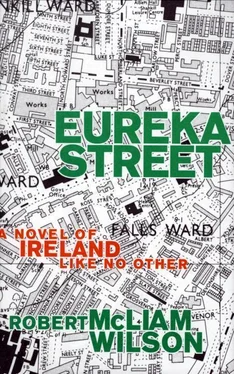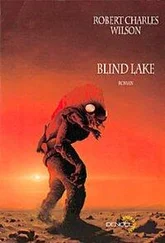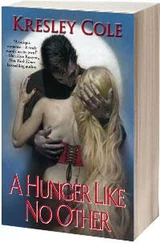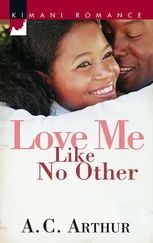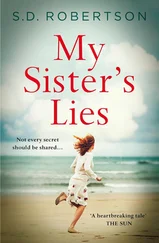There were many people with cuts and scratches, there were many people frightened. Some of the amateur ambulancemen and women, who had waded in when the smoke and dust had cleared, saw dreadful, emetic sights that would rest like a film over everything they would see subsequently in their lives.
In the ringing, piercing silence of the aftermath of the bomb, there were a few moments of something grotesquely like peace. The dead were dead, many of the dying were unconscious, or incapable of speech, most of the injured and the terrified were in shock or simply very, very surprised. Because it had been very, very surprising. An everyday, entirely forgettable, urban situation (any cafe, any shop, any pub, any street) explosively converted into a slaughterhouse. The living took a few seconds to understand, to start their screams.
Three minutes later, some policemen had arrived. Some stood or squatted by the injured or dying, some clambered over the rubble to look for survivors, one intelligent policeman just turned and ran away.Within five minutes, the first ambulance had arrived. The two paramedics, thinking themselves veterans, waded in with some aplomb; within seconds they were gagging.
Some of the immediate rescue operations were hampered by the delicacy of the police. One of the traditional features of these explosions was that the bombers would plant a second or even third device timed to detonate some minutes later, planted just where they thought the police might set up their cordon lines. Police and firemen took some time to make sure this was unlikely — one sandwich-shop victim, who might not have died, died.
By the time ten minutes had passed, the death-toll had risen. More paramedics struggled with their horror and more police officers and firemen scrabbled amongst the debris. Several passers-by had simply crumpled to the ground like nauseous children, formless heaps, trembling, silent.
After fifteen minutes, most present had grasped the situation. A cordon had been erected. Onlookers and journalists were restrained. Digging crews had been set up. A triage system was working efficiently, supervised by a youthful doctor who would never know how much she had physically resembled Rosemary l)aye. It was notable, nevertheless, how many people still refused to understand what had happened. Several of the shocked onlookers sat staring dumbly at the excrement and tissue and blood, incapable of comprehending how political this was. One nave fireman, upon retrieving what seemed to be a portion of a severed head, naively believed this to have been a sadistic act. A woman with a bloody face who comforted her young son near the bookshop had no real conception of the historical imperatives leading to such an event. One French tourist, who'd been closer to Castle Street than to the bomb itself but still had been badly scared, even wondered to himself why anyone who might want the British to leave the Irish alone would announce this by killing Irish people. But he was French.
There was all round a lamentable lack of overview, of objectivity. Those involved refused to put the event in its proper context. And for some unruly souls, this was a process that continued for some time. Indeed, one churlish triple amputee actually told a newspaper some weeks later that he would never be able to understand or forgive the people who had planted the bomb.
One can excuse much of this by their surprise and some of the immediate physical distress attendant upon such an event, but the more consistent refusal of some to listen to reason or explanation is perhaps harder to fathom. Maybe, at such times, many people simply refuse to read between the lines. Maybe they believe the lies that their eyes tell them.
For the men who planted the bomb knew it wasn't their fault. It was the fault of their enemies, the oppressors who would not do what they wanted them to do. had reasonably asked to have their own way.They had not succeeded.They had then threatened to do violent things if they did not get their way. When this had not succeeded, they were forced to proceed with extreme reluctance to do those violent things. Obviously it was not their fault.
It was the politics of the playground. If Julie hits Suzy, Suzy doesn't hit Julie back, Suzy hits Sally instead.
The rest of the day at Fountain Street was a stretched, slow thing.The hours passed as though time itself had been damaged in the blast.Time passed at the pace it took a man to walk across the rubble. Time passed like death.
They removed the seriously injured. They removed the medium injured. They removed the slightly injured. They removed the shocked. They didn't remove the frightened. Some of the frightened had to stay. They themselves were some of the frightened. Witnesses were interviewed by the police. The police were interviewed by the press. Politicians gave statements. Medics gave statements. There was a round of hearty condemnation and outrage on all sides. Few paused to think how often they'd repeated those words over the last double decade or so. The accessible bodies were removed and then the dig for the more inaccessible remains began in earnest.
Earnest was the right word. Such an endeavour was a committed journey into gravity, into deep seriousness. Some of the diggers were civilian volunteers. Men and women of good humour started this work and felt like there would never be anything to laugh about again. They found many things. They found a partially damaged hearing aid, which was never attributed to any of the victims. They found the sandwich bar menu board, dented and bloody. There was a rumour that they had found a perfect human brain, completely exposed. They found an undamaged green linen skirt, which mystified the female dead were badly mangled and their clothes mostly in one perceptive individual spotted that it still bore a large price tag. They found clothes, wallets, toys, handbags, coats, shoes and boots, people, bits of people and things no one could identify.
A man called Francis, a father of two, found a small blue thing he could not recognize. He was about to throw it in the pile in which the discovered clothing lay when he realized that there was a scrap of blonde hair attached. His heart blew like another bomb and he dropped it in horror. It was a bit of a blue hat with a part of a little girl's skull attached. (It was later identified as a piece of the greater remains of Natalie Crawford.) He shouted to the others and sat back on some debris, breathing hard. A couple of firemen came over. Francis pointed to the small blue thing. One of them picked it up. The other patted him on the back. `You all right?'
Francis nodded, still puffing like a woman in labour. After a couple of breaths, he went back to work and started climbing again over the hill of rubble. It would have been better if a single man had found the small blue thing, or at least a man with no children. But Francis had those two daughters and an inappropriate gift for empathy. Within a couple of minutes he was holding his hands in front of his mouth and nose and sobbing like a beaten was also a sloppy thinker and had no real grasp of history or politics.
Such inadequacies were common at the bomb-site. A fair few were also obvious at the two hospitals, which dealt with casualties and fatalities. The Accident and Emergency Department at the City Hospital quickly came to look like a knacker's yard. Other everyday patients, who had come in with sprained ankles or slipped discs, reeled out in horror. In the mortuary, the bodies were laid out bit by bit, assembled slowly from the seventy or eighty pounds of unidentified tissue brought to them there. A difficult task because so much of it was scorched and shredded. Human flesh was famously illequipped for withstanding such conditions. What had flesh ever done to merit such treatment? The sins of the flesh must have been big sins for flesh to be treated so.
Читать дальше
